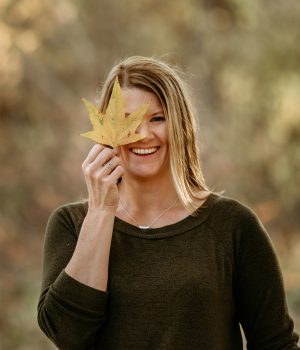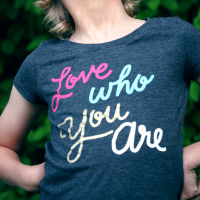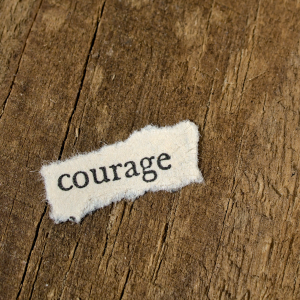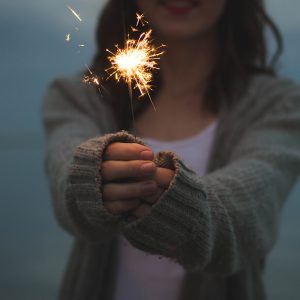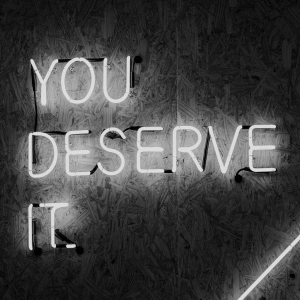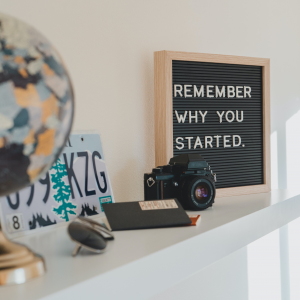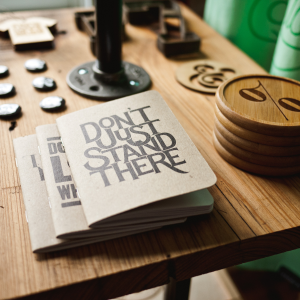In this episode, I’m sharing all about my recent solo adventure and lessons learned in the Colorado wilderness. Have a listen and see if you can learn something too!
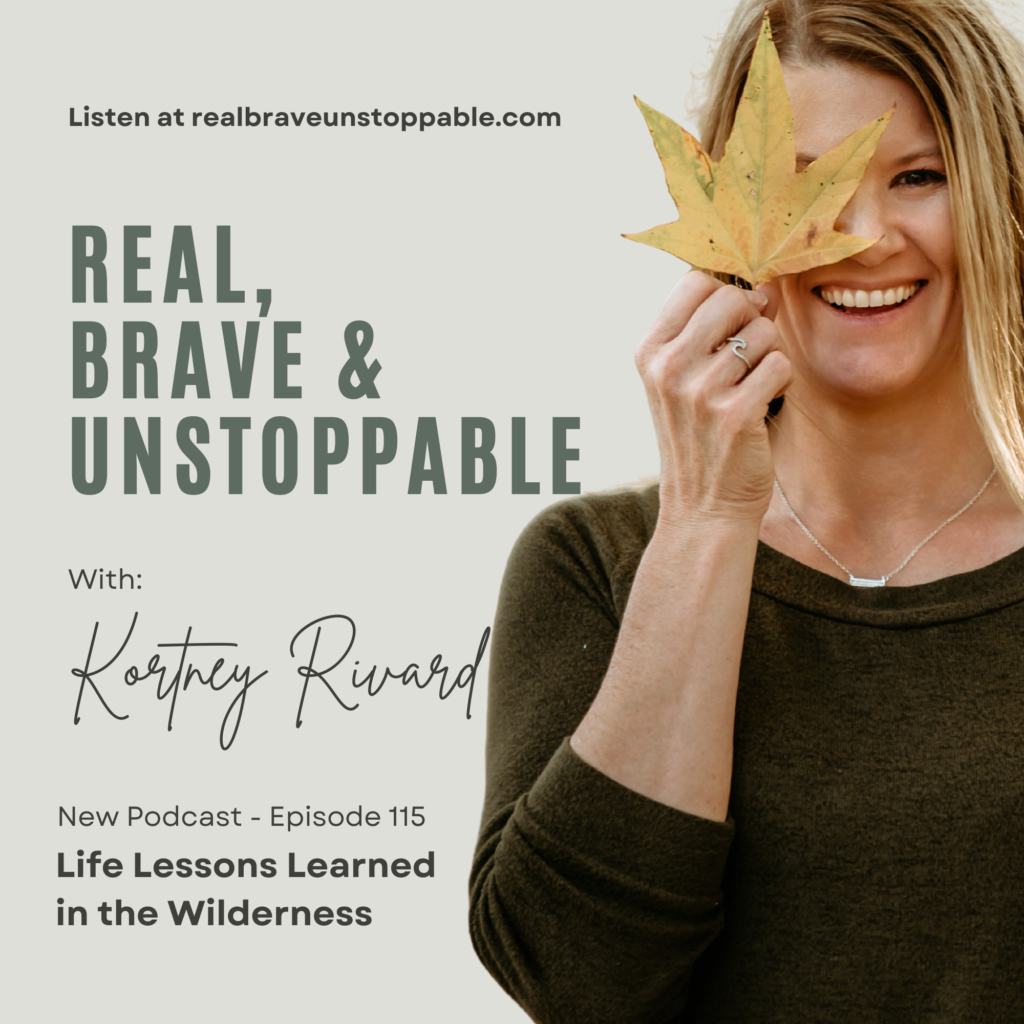



Show Notes:
Welcome to Episode #115 of Real, Brave, & Unstoppable!
Being in nature is one of my favorite things, and the mountains are totally magical to me. I recently spent 4 days in the Maroon Bells-Snowmass Wilderness in Colorado on a solo backpacking trip. It was amazing and a great opportunity for me to get some time to myself and take in the beauty of the backcountry.
This week on the podcast, I’m talking about my trip and some of the lessons I learned that I can apply to my life and maybe you can too!
Have a listen and don’t forget to leave a rating and review!
Resources

How to Create the Life You Want FREE workbook
Click HERE

Podcast host and life coach, Kortney Rivard, helps women who want to live more exciting, more fulfilling lives get out of their own way and start creating a life they love.. Book a call to chat about how you can start changing YOUR life today.
CLICK HERE
Support the show (https://www.buymeacoffee.com/kortneyrivard)
Other episodes:
- Ep 122: How to Take the High Road When People Say Mean Things About You
- Ep 121: 5 Ways to Make the Mirror Your Friend
- Ep 120: Getting Back on the Goals Bandwagon – Setting Better Goals
- Ep 119: Slow Down! How to Embrace Getting Still and Waiting Patiently
- How to Fix Your All-or-Nothing Thinking
The Real, Brave, & Unstoppable full episode catalog
Transcript:
Episode 115:
Hello, my friends. And welcome to this episode, episode number 115. I think it’s 115. It might be 116… Of real brave and unstoppable. Today, I’m going to tell you all about my recent solo backpacking trip to Colorado and all the things it taught me about living a real, brave, and unstoppable life.
There are a lot.
I could really talk for hours about this trip and I hope this will be an interesting episode for you. I kind of debated whether or not it would be, but it really does line up with the show’s values and mission… really living a life that’s full of courage and adventure, and really just not letting things stop you.
So, I’m going to start by giving you kind of a synopsis of my trip, and then we’ll dive into all the things that I learned, and that hopefully you can learn from too. I have had a personal goal of taking a solo trip for a couple of years. It’s just something that has always appealed to me.
I’m not exactly sure why, but if I had to guess, I think it’s a good way for me to a) be able to do my own thing without having to worry about taking care of other people or deciding for other people. I’m usually the one in my family that makes decisions. Everyone else kind of looks at me. Like, I don’t know. I don’t care.
So it seems like nobody else has an opinion. So it gets a little tiring sometimes to make all those decisions. And b) remind myself that I’m independent and I can handle a lot on my own. And maybe c) it felt like life was just getting a little too comfortable and I kind of wanted to shake things up a bit.
Which might actually be my biggest reason. I’m not sure. So I have a week, every summer where my kids are with their dad on vacation. We each get a week. We each get two weeks, but usually, we only take one. So this year I decided to use that week for my solo trip. It was a perfect opportunity. I was looking at going to Paris and Provence in France.
I also considered Spain or Portugal. I also considered guided backpacking trips. I was looking at half dome in Yosemite, which is still a bucket list for me. I also looked at the REI adventures in Colorado, California, Montana, and Wyoming. Those wouldn’t have been solo trips, but I would have been going by myself to join them.
And I nearly pulled the trigger on flights to Europe a few times. And then the same with the Yosemite trip. But there was something that told me to go on a trip to Colorado to backpack, the four-pass loop in maroon bells- Snowmass wilderness by myself. There was something that was just calling to me. And I asked people in my, the backpacking groups I’m in and I’m like, what would you do? And people were like,
Sit with it. See what, like, just see what calls to you the most. And like I did, and not just felt magical to me. So a lot of people kind of, when I said I was doing it by myself. A lot of people thought I was crazy.
Some people told me it was badass to do it by myself. And now, before I inspire you to go on a solo backpacking trip in the wilderness, Please know that I did not just on a whim, decided to do this. I educated myself. I had the proper gear. I went on a trip, you know, a few trips before that. My very first trip was with REI. And so I learned a lot about backpacking.
I took a course- she dreams of Alpine. I’m just going to give her a shout-out. She has a course called Become an Outdoor Backpacking Badass. And, it’s really got everything in there that you need to feel like safe and self-sufficient on a trip by yourself.
But, you know, make sure that you don’t undertake something like that without having the proper training, the proper gear, or safety plans in place. I had all of those things in place and I was really, really detailed about it. So just know I didn’t just hop out into the wilderness and say, yay. I was really prepared.
I spent four days and it was really like three full days plus a little tiny bit on the fourth day… and three nights backpacking this loop and it was totally amazing. For me, the mountains are my magic happy place, but, and I think I’m still kind of unpacking the significance of this trip for myself…
but the four-pass loop is in the maroon bells wilderness outside of Aspen, Colorado. And it’s kind of between Aspen and Crested Butte.
It’s just under 27 miles in total.
And in doing this loop, you summit four different mountain passes. It is the hardest hike I’ve ever done. And for some of you, these details, aren’t going to be too exciting, but I’m going to share them because I think they’re pretty cool. And some of you might be interested.
So day one. About five and a half miles. 2,264 feet of elevation gain. 198 feet of loss. Uh, the low elevation at the trailhead was 9,557 feet. And the highest, where I camped was 11,668 feet. So. A lot of gains there. And then also the thing that I think is interesting is like, when you look at the slope, the average slope of
the terrain. The average slope is 13 degrees, which is, I mean, that’s not insignificant, but the maximum was 32 degrees. And that was one of the easiest days I had.
Day two. just over eight miles. 1,622 feet of gain. 2,998 feet of descent. Hard on the knees. My lowest elevation was 10,266 feet, which is where I camped that night. And the highest elevation was 12,469 feet. And the slope, the average slope is 15 degrees, maximum of 41 degrees. That was also a fairly easy day. Did two mountain passes, West Maroon pass and, Frigid Air pass.
So day three was by far the hardest day. I went farther on this day than I planned. And this is where I hiked with. I’ll talk more about these people, but I met some people that I kept bumping into and we hiked together for, for. Pretty much that whole day. Um, So day three was like nine and a quarter miles.
3,952 feet of gain. 2,764 feet of descent. That was so hard on the knees, especially on that day with that much gain also. The low elevation was 10,280 feet. And, the high elevation was 12,471 feet, which is the highest elevation I reached on the trip. Camped at 11,489 feet. Um, the average slope was 20 degrees, maximum slope was 45 degrees. So you can imagine…that’s a lot. That day we tackled two mountain passes, trail rider Pass, which was the hardest one in my opinion, and buckskin pass, which was beautiful. Both of them are beautiful. But then day four, I had an easy day. I had just about three and a quarter miles. A gain of 82 feet. And a descent of 1,909 feet.
So, that was again, another fun on the knees. Easier in some ways, but the joints were really tired at that point. So just for those of you data nerds, that was kind of a little bit about those. A little, a little, uh, details about the actual route itself. But during this trip, I learned so much about myself. Actually, during the trip and in the planning of it.
So, first of all, the “why” of planning the trip.
I used to undertake all kinds of things, even if they were really big quote-unquote, cause that’s just kind of who I am. I’m adventurous. I’m curious. I love to learn and grow. So when I see something that intrigues me, it’s really in my nature to just go do it. And I say I used to undertake all kinds of things. I still do that,
but I haven’t really committed to anything like this big in a while. And also not to say, you have to go do quote-unquote big things, but as we get older, our comfort zones tend to shrink. And I hear people say all the time… That like, I feel stuck or I’m, I feel like I’m just going through the motions all the time.
And the stuckness is often just being stuck in a small, comfortable world. And not to say that you need to go do like big things, like do a solo backpacking trip to get unstuck or you know, get out of your comfort zone. That is not the point. This was just sort of my way of doing it. But the lesson in this is really that living in alignment with your values, what’s important to you is what helps you get unstuck.
It’s how you really find meaning in your life as you move through it. Even more so than goals like reaching goals is great. It’s a great feeling, but being connected to your values along the way, being connected to why that goal is important. Is really where you stay out of that stuck place. And it’s also how you keep pushing yourself outside your comfort zone. So adventure and courage are both values of mine.
As a simplicity, living in the wilderness with only the bare necessities for four days, anyone? Simplicity. So even though there is a little bit of fear involved here, like this adventure really aligned for me, you know, obviously adventure, it’s an adventure and courage. Like it took me some courage to.
You know, it started with booking the flight to Denver, then it started, then it was with, yeah, just doing it. So all is really in alignment for me. Also, we are all so much more capable than we think. Like sleeping alone in a tent, the fear comes from your brain. And sometimes, you know, we let our brain stop us from doing things like that.
I think there might’ve been a bear outside my tent one night. I don’t know what it was. I heard a noise. Somebody said it sounds like a bear. Talk to you later. Was I a little afraid? Um, sure. But I also knew that I had prepared myself for what to do in case that happened. Like I knew exactly how to handle that situation.
Intuitively. I knew I’d be fine, but like my brain was freaking out. So that leads me to my next kind of point to talk about or lesson. And that’s really like the fear of the unknown. I had some questions about how this trip would go. The biggest thing was the altitude. I live at sea level. Most of this trip was above 11,000 feet.
And I’ve never done such strenuous activity for days on end at such a high altitude, outside of skiing at Telluride over like 20 years ago. And my family, we went to Colorado and stayed in Breckenridge like a couple of years ago, but we didn’t do this kind of activity, this physical activity.
So, I didn’t really know how I would fare. I ended up being fine and didn’t have any issues, thankfully, but like, I could have let that stop me. That could have been one thing that was unknown. And I also kind of questioned my physical fitness a little bit. Now I’m in pretty good shape. But probably like I could have trained a little bit more given the elevation. Um, so there were thoughts that crept into my mind about that as well.
Like, how am I going to hold up on this? That combined with the altitude, like, am I going to be too slow? I also watched – don’t ever go watch stuff on YouTube – but I also watched a video of this woman who did it by herself and she ended up quitting. So, of course, that was in my mind too. And, you know, that first night I’m not gonna lie. Like I felt so tired. I did almost six miles, like five and a half miles. And it was like 2000 feet of elevation gain. And I’m really not used to hiking that slowly. Like it slowed me down obviously. And I’ve also not used to being that tired after a relatively short distance, six miles, five and a half miles when you’re backpacking is really not that much. And so I had a plan, like if I wasn’t feeling good, I would just hike back out the next day and, you know, do something different the next night.
And let me tell you. The thoughts about the unknown and feeling tired had me thinking about hiking out and scratching the whole thing the next day. Yeah. So the lesson here. Is recognize what you’re thinking, notice it. Okay. So I noticed that there were some unknown things that were in my brain. My brain was having a hard time extrapolating.
Like, is this going to be okay? And I mean, I knew it was going to be okay, but my brain, you know, trying to protect me… the lesson is to notice the thinking, you know, I knew I was capable of doing this loop. I knew it. And if nothing else, I’m mentally tough, you know, but my brain almost told me to turn around, just turn around. This is stupid. Why are you doing this by yourself? You don’t have to prove anything. You know, it’s a lot of work and…all the things right. You’re not going to sleep well, it’s, you know, you could be doing day hikes and like, you know, whatever. Anyway. So pay attention to the thoughts, friends, like just notice them name them, neutralize them to see them for what they are. Right. They’re just thoughts, sentences. And then just choose the next best thought or action.
So for me, like, I really thought about my values. Authenticity adventure, courage, freedom, growth, connection. When I work with people on values, by the way, I tell people to narrow it down to three to five, but I broke my own rule. I have six. But in this case, like all of these values, they related, they aligned. So it was like, why would I turn around? This is like totally in alignment with who I am and what I want in life. And like what brings me meaning.
So, you know, I did, I noticed, oh, there’s my brain just trying to. You know, keep me safe and okay… But that’s avoiding, this is not going to help me live and it’s not gonna help me connect with what’s important. So…
onto the next lesson. The next lesson is very simple. It’s just that morning coffee watching the sunrise over the mountains is the best thing ever. Totally my happy place. It’s magic. That is all.
Okay, the next lesson is having an open mind. Because you never know how things are going to turn out. You never know who you’re gonna meet. You never know what you’re going to encounter. Things unfold in a really cool way sometimes.
I was on the shuttle bus to the trailhead. I met a group of three people, Justin, Jess, and Brittany, that I chatted with a little bit, they were going to be doing the same loop I was doing. And I ended up starting a little bit before them, after bathroom breaks and stuff, but at the trailhead. But I bumped into them again on the second day.
And, you know, you never know who you’re gonna meet when you’re out on a trail. Sometimes people aren’t very friendly. Sometimes I pass people and they don’t even look up, which is so non-hiker-ish, come on people be friendly. But it’s really a lesson that the people you meet like you don’t know anything about them.
But they might be really cool and fun like this group. Just Brittany and Justin, if you’re listening, that’s you. And then there was another group of four women who he kept bumping into as well, and they ended up being super fun too. And forgive me if you’re listening… Cause I told them about my podcasts. Heather,
Jess (the other, Jess), and Jess has a dog Rupert, who’s a golden doodle that did this whole hike as well. And then, Sam and, oh my gosh. The fourth person. I’m so sorry if you’re listening. I am so sorry that I can’t remember your name, but I know you’re in tech sales. And you’re really fun to talk to. So anyway,
But it was so much fun. I had some good solo time on the trail, but I also, you know, made some good friends, and made it, made my experience that much richer. And we even took a dip in the freezing cold waters of Snowmass Lake together in our underwear. And they’re also my favorite people because when I told them I’m 50,
they could not believe it. So you’re all my best friends. So stay open to other people. You never know the fun people you might meet. You never know the experiences it’s going to bring to you. It’s really, really cool to think about that. My grandparents were very open to other people and they met so many cool people and had so many cool experiences just because they were really open-minded in that way.
So. The next lesson is related to self-care. I had talked about the elevation gain and descent, elevation gain and loss. earlier it’s a lot, right? And I, you know, I’m not somebody I’m somebody who knows the value of self-care, and I coach people on it all the time and sometimes I’m not good at giving it to myself because I like to be going.
So, you know, the lesson is to listen to your body and give it what it needs, including the proper rest. Even if that’s hard. The third day of my trip included almost 4,000 feet of elevation gain and almost 3000 feet of descent. And the descent was really hard on my body… my knees and my ankles. And I was really hurting by the end of it.
When I got to camp and set up everything, I took some Aleve, but my sleep that night was so bad because my joints hurt really bad. So, of course, I had the next day to hike back to the trailhead, which wasn’t a long hike.
But my tendency is to really jump back into my normal activity. Like my normal workout routine or my normal go-go-go routine. But my body was so mad at me. So when I got home from the trip, I just I’ve really had to be mindful of taking the time that my body needs. There are still, I hate to admit it…
there are still some aches and pains. And while it kind of pisses me off, I’m kind of trying to lean into it. And, uh, one of the people I met on the trail, um, she’s a PA and she’s, she said, well, as we get older, we just have to embrace a new normal… or a new baseline for how she said it, but… Yeah, just kind of trying to give my body what it needs and we all need to do that. We need to listen to our body and give it what it needs.
So. Next lesson relates to simplicity and lightening the load. So when I was packing, I weighed my pack with everything I’d be carrying. And it was in my opinion, a little too heavy.
It weighed in like 36 pounds, which was with, with food and like estimated water… I don’t carry a ton of water cause there’s a lot of water on the route to be able to filter. But, that was like, yeah I was like, that’s way too heavy. So I shaved ounces where I could. I switched out wet wipes for dehydrated wipes that you just put water on, ditched the toothpaste, and went to toothpaste tablets. I cut out a couple of other things also. I struggled with… So, I guess there’s another lesson in here too, but I struggled with whether or not to bring my Kindle and I have a little tiny backpacking chair. It only weighs a pound or just a tiny shade, less than a pound.
I really struggled with that. But, I ended up taking it. Also made some other trade-offs. I got a different sleeping bag that was lighter, almost a pound lighter. So I ended up being able to cut like a pound and a half off my pack weight.
And I knew the track would be really strenuous, so I wanted to have that pack as light as possible, especially given my question mark with altitude and stuff like that. So the first lesson here is life’s journey is way easier when you put things down that are heavy and unnecessary.
Carry just what you need. But there’s like a second little sub-lesson there… is that sometimes there are little luxuries that are worth it. And my chair and my Kindle were two things that I almost didn’t bring, and I am so glad I did because I really enjoyed sitting in my chair. It’s not the most comfortable chair, but it’s still, it’s a chair.
Um, I really enjoyed sitting in my chair, reading at camp. So sometimes luxuries are worth it.
The next one. Alpine water. And the like Alpine spring, which is our summer, but Alpine water is heavenly when your feet hurt. But only for a minute, cause it’s fucking cold and it starts to hurt really bad.
Uh, that’s that lesson?
So my last lesson here is to be damn proud of your accomplishments. All of them. Don’t let your brain try to tell you that they’re insignificant. People would say to me, oh, that’s amazing. I’m so proud of you, and my brain. I mean, in some way, like I was like, yeah, me too. But there is a part of me that my brain was like, yeah, it’s just whatever. I mean, it’s just…
the people do harder things. It’s not that big of a deal. And that’s an old pattern of mine. Trying to downplay the things I’ve done because other people have maybe done something bigger. But no, this was big, not many people undertake this kind of thing, a solo back-country trip and take on a route as big as the four-pass loop. I’m not saying that’s a brag either, but you know, sure. Do people climb mountains like Kilimanjaro and Everest? Uh, of course.
But that doesn’t make my accomplishment any less significant to me. It accomplished what I wanted it to. It pushed me out of my comfort zone. It was amazing. I loved it. And it’s really not about me impressing other people. I’ve been there before. That this is why I do big things like this is because I get external validation and it feels good, but that’s not my motivation anymore. So now I’m checking in with what’s important to me in life and I’m connecting with my values.
And so, yeah, it’s a huge accomplishment just because I did that, you know. I made life meaningful to me during that you know, trip. So there, brain. So the lesson is to celebrate your wins no matter how big or small, especially when they, you know when they’re aligning with a value of something you’ve chosen to align and connect with something that’s important to you. So go celebrate those wins.
There are a lot of other things I could talk about. There’s so much that I got from that trip. So many amazing views. I think another lesson off the top of my head here would be like, you know, things can be really hard. Like some of those mountain passes climbing them or just, I mean, I would be like, okay, I’m going to take 10 steps and then take five breaths.
And then it became, I’m going to take five steps and take two breaths. And that would be like, I’m going to take five steps and I’m just going to stand here for awhile. So it’s hard. It’s really hard. And then when I’d get to the top of these mountain passes. You stand there and look, and like in the valley or the basin, whatever valley
you just came from, the view is like, incredible.
Then you turned it and looked at this new view and it was amazing. It was beautiful. Different, but beautiful too. And so I think like that’s something to remember is that life can be really hard sometimes. And there’s always like a better place. There’s always, Or I guess like, we’d even say different place.
You know, I don’t know that I, I don’t, I like to stay away from saying something is better than another because they’re just different. They might feel better because that’s how we’re conditioned, but in truth, like even in the hard times, we gain a lot of growth from those times. So. You know, but when you do work really hard and things are kind of a slog, as you get to that peak, to that summit, and then you see a whole different view than you did before. So that would be another lesson I would say.
I think that’s a pretty good one. So anyway. If you have any questions about backpacking or adventure and just want to like pick my brain about it, feel free. I get so excited about this kind of stuff. So just email me or, or, you know, reach out. Uh, via the website. yeah. Feel free to ask more questions about it.
So friends, thank you for tuning into my little trip recap and lessons learned. I hope it was interesting. And maybe you got something from it. Before I go, if I can just please invite you to go leave or rating and a review, that would be amazing. As I’ve said before, it really helps people find the show. And I know a lot of people, I talk to get a lot from it, so I really want to spread what I have to say even further in case it can help other people too. So if you wouldn’t mind doing that, that would be awesome.
And I will see you next time.
